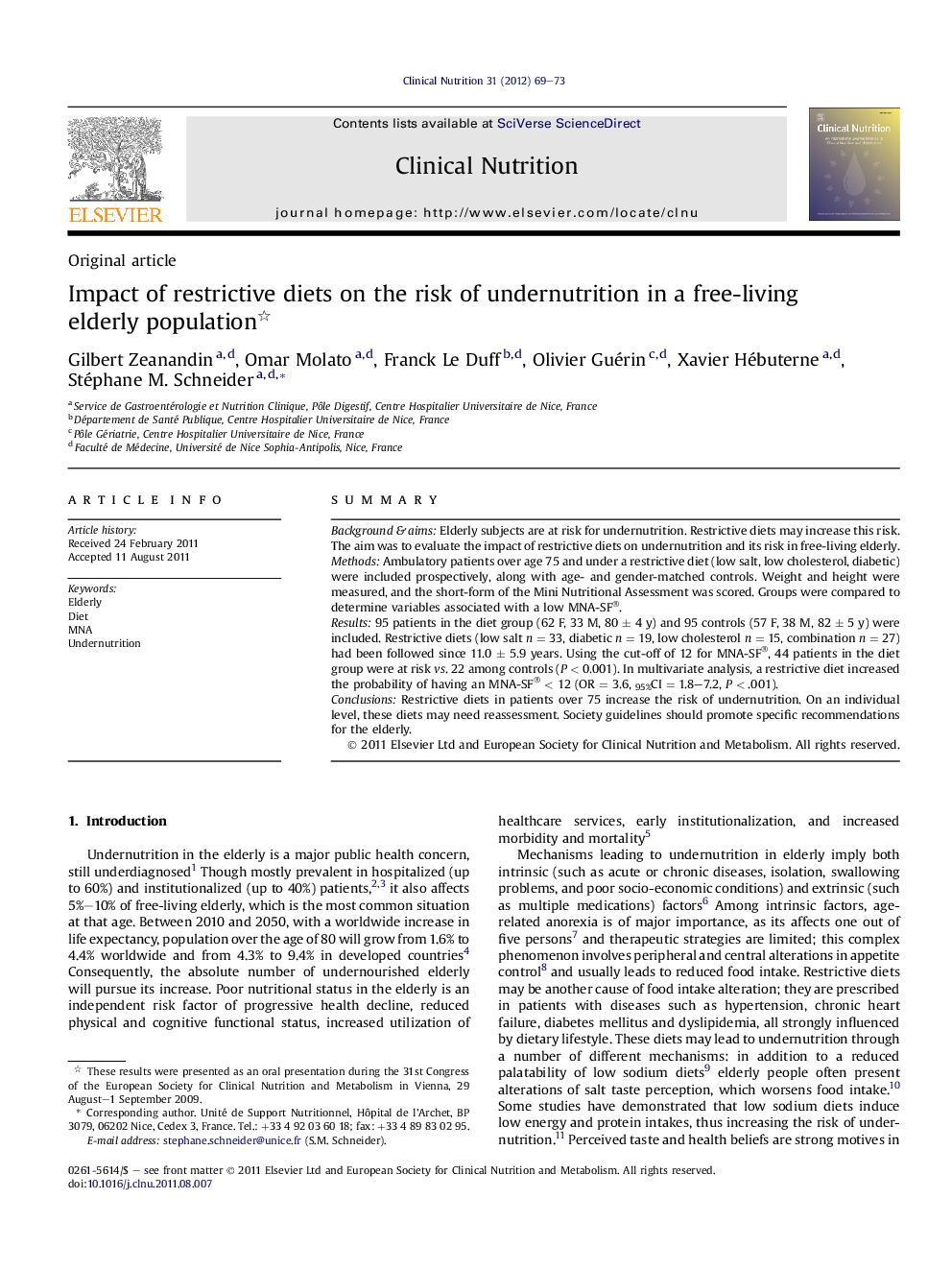| Article ID | Journal | Published Year | Pages | File Type |
|---|---|---|---|---|
| 2688429 | Clinical Nutrition | 2012 | 5 Pages |
SummaryBackground & aimsElderly subjects are at risk for undernutrition. Restrictive diets may increase this risk. The aim was to evaluate the impact of restrictive diets on undernutrition and its risk in free-living elderly.MethodsAmbulatory patients over age 75 and under a restrictive diet (low salt, low cholesterol, diabetic) were included prospectively, along with age- and gender-matched controls. Weight and height were measured, and the short-form of the Mini Nutritional Assessment was scored. Groups were compared to determine variables associated with a low MNA-SF®.Results95 patients in the diet group (62 F, 33 M, 80 ± 4 y) and 95 controls (57 F, 38 M, 82 ± 5 y) were included. Restrictive diets (low salt n = 33, diabetic n = 19, low cholesterol n = 15, combination n = 27) had been followed since 11.0 ± 5.9 years. Using the cut-off of 12 for MNA-SF®, 44 patients in the diet group were at risk vs. 22 among controls (P < 0.001). In multivariate analysis, a restrictive diet increased the probability of having an MNA-SF® < 12 (OR = 3.6, 95%CI = 1.8–7.2, P < .001).ConclusionsRestrictive diets in patients over 75 increase the risk of undernutrition. On an individual level, these diets may need reassessment. Society guidelines should promote specific recommendations for the elderly.
